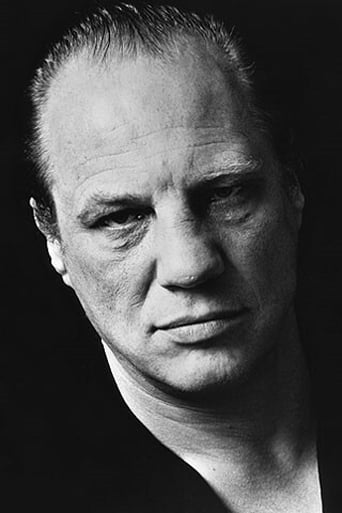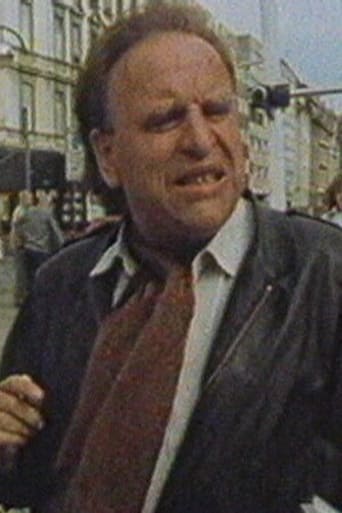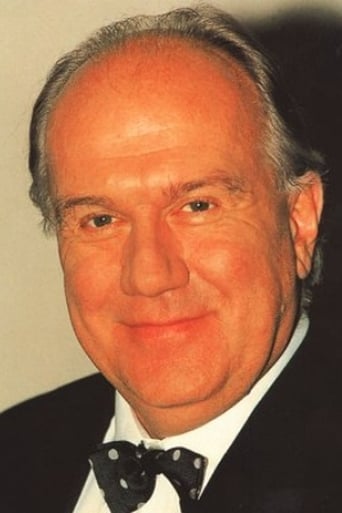Brightlyme
i know i wasted 90 mins of my life.
UnowPriceless
hyped garbage
Supelice
Dreadfully Boring
Cissy Évelyne
It really made me laugh, but for some moments I was tearing up because I could relate so much.
bregund
I've always enjoyed Herzog's humanism and here he doesn't pull any punches. When a trio of misfits tires of Germany and has their sights set on a fresh start in Wisconsin, you know it isn't going to work out. The prostitute tries to be a waitress, the fool tries to be a mechanic, and the old man...well, let's just say he has some wires crossed. No matter how much you think things will work out, you need realistic goals in the first place; all they did was carry their baggage with them to a new country. There is a lesson behind the dancing chicken, who doesn't even know why he does it or that it's supposed to be entertaining because he's acting on pure instinct, trapped in his little world behind glass where he performs some trick in exchange for food. I want to think that at the end, Bruno finally accepted his limitations as a human being. Like Bruno, most of us are just average.
ShantKayan
Indifferent truth.The only movie I've seen that portrays emptiness and indifference to an utterly devastating degree, I can see how Ian Curtis could've committed suicide after watching this film, and Bruno's brilliant performance doesn't help either. It's one of the best performances ever and he's not even an actor.I believe this is the most honest and truthful film there is, not interested in making you sad or happy it just is, just like the real world, also it's one of the most unforgettable endings I've ever seen.The goddamn chicken will haunt me for the rest of my life, they will also remind me to live a spontaneous life, void of routine.
TedMichaelMor
The richness of "Stroszek" strengthens with multiple viewings. Haunting cinematography by Thomas Mauch has a bitter-sweet humor faithful to mid-century American experience. Underscored by sentimental American popular tunes many from Chet Akins presage "Aguirre, der Zorn Gottes" enhanced by pensive editing by Beate Mainka-Jellinghaus. The late Bruno Schleinstein plays a protagonist. If you do not know his story,watch the film and then read about him. In the film, he also plays (his) piano, accordion, glockenspiel, and hand bells. This is music by Bruno S. himself. Even though the movies tells a story set in America, it is a film about Bruno S. and, in an important way, a film for him.Eva Mattes, famous for her work in four masterworks by Rainer Maria Fassbinder, brings a dry, sardonic sense to what might have been a maudlin role. Many who play in the film are amateurs the crew met on location. The second cameraman Edward Lachman often improvised English language dialogue in the moment. Literally, Mr. Herzog used the people he and the crew met at the moment. Sometimes, especially in the sections shot in Germany, those playing the role were known ahead of the shooting. The scenes early in the movie with a brutal pimp are played by a brutal pimp. The premature baby is with an actual doctor who works with premature babies.Editor Beate Mainka-Jellinghaus took part in the shooting. Improvisation plays a major part in the tonality of "Stroszek". With Bruno S. and others, improvisation plays a vital and central role though Bruno knows what he is to do.This is a terrific film that I relate to Michael Ritchie's "Smile", another masterwork that explores similar themes. Yet, Herzog's view of American life is not bitter like that of Mr. Ritchie. It is brutal—but not meanly so. I think that the meanness has more to do with the story than with Mr. Herzog's opinion of the United States. He admits to having deep affection for the heartland of American and to the people who live there. For one who loves the immense formal beauty of European Modern French, Swedish, and Italian films, watching German movies is sometimes hard in some ways. Many films from the wave of German movies of which Herzog's work is part and example have a hard look. Some of them are hard to watch. The humour is hard even if it softens bitterness. This is not an optimistic film but that is not the mood that Herzog finds about America. It is simply the mood of the story. Do not listen to the commentary on the DVD until you first watch this film without it. Then do listen to the commentary. From the commentary, you learn precisely how the movie blurs lines between documentary and fictional film narrative. In the end, we realize the "Brave New World" image of conditioned life in America—in the trained rabbit and poultry, a duck and especially a chicken, at Cherokee,North Carolina. Sonny Terry, blowing his fierce blues harmonica, beats the frantic and pointless pace at which we live. Funny and tragic but not mean, these images infect your memory.
bandw
When we first meet Bruno Stroszek he is being released from prison with a lecture from the superintendent about not going back on the bottle. But soon Bruno is in a bar where he tries to re-engage with a woman named Eva. We don't get much information about Bruno's past relationship with Eva, but she is now a prostitute involved with two vicious and controlling pimps who have no use for the docile Bruno. When Bruno offers Eva a place to stay (a place that has been kept for him by an elderly neighbor named Scheitz) she accepts. But the pimps terrorize the two to the point where they feel that they have to get away, and Scheitz offers them the perfect opportunity to come with him to Wisconsin, at the invitation of a nephew. The three do go to Wisconsin, but America does not turn out to be exactly the land of milk and honey for them.The scruffy Stroszek has the aspect of a good-natured but wounded animal. He seems rather simple, but then you are not sure about him and he remains an enigma. I kept thinking to myself that this actor Bruno S. was doing a great job in creating a unique character. Only when I listened to the director's comments did I realized that Bruno S. was essentially playing himself. The son of a prostitute he was abused as a child and spent much of his life in institutions until the age of 26. Herzog saw him in a documentary on street musicians and recognized a quality in him that was enough for him to carry this film.Herzog says he wrote this in four and a half days, but, as is true for any work of art, it is a product of life experiences. Herzog puts his eclectic mind to work to great advantage. He has a memory for people and places and can bring them together in creative ways. For example, the man who plays Scheitz's nephew is a mechanic who in real life had worked on Herzog's car some time ago. Herzog remembered that there was a native American working in the shop at the time, and, even though he had long since left the business, Herzog tracked him down just so he could be in a few scenes. The use of non-actors in many of the scenes adds realism--hard to imagine actors could do any better. The scenes toward the end take place in Cherokee, North Carolina, a result of Herzog's memory of having once been there. It seems that many scenes are thrown in simply because they caught the director's fancy: a doctor tending a premature baby, two farmers feuding over a stretch of land, a driver-less truck running in circles. But this patchwork comes together to create a whole in a miraculous way. I particularly like the way that Herzog will hold a scene for added effect, like when poor Stroszek's repossessed trailer home is hauled off, leaving Stroszek staring at the empty landscape.I don't know what the hell the meaning of the final two minutes is, but I can almost guarantee that you will never forget that piece of film. These final minutes provoked in me some of the same emotions I experienced in watching the rest of the film--saddened by the pointless absurdity, but fascinated by the spectacle.Some see this film as an ultimate criticism of American society, but I do not see that. The Americans are just going about being human is all. The thrust of the story is about people like Stroszek--no matter where they are they cannot escape their unfortunate pasts and personal limitations. In not uncommon circumstances such people come to tragic ends.






